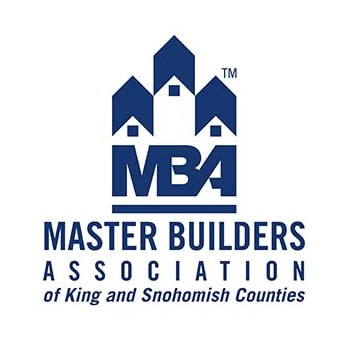Home Inspection Preparation
How to prepare for a home inspection is a thought that more sellers should consider. Unfortunately, many do not.
One of the things that are quite common in most Real Estate transactions is a home inspection paid for by the buyer and performed by a licensed professional home inspector.
Buyers will have a home inspection whether it is a house, condo, townhome, or even something less conventional like a modular home.
When selling Real Estate, a home inspection is typically done within the first couple of weeks after an offer has been submitted by the buyer and accepted by the seller.
The Real Estate lingo used is called a “home inspection contingency.”
This contingency is spelled out in the agreed-upon Real Estate contract. The traditional language in most purchase and sale agreements gives the buyer an out to terminate the contract if severe structural or mechanical defects are found during the home inspection.
There will be a specified dollar amount in some contracts that gives the buyer the option of revoking the contract if issues are discovered more than this agreed-upon figure.
In a Real Estate transaction, the home inspection is one of the biggest hurdles a home seller faces to have a successful sale.
It stands to reason that you will want to make an effort to have your home in the best possible condition before the home inspection occurs.
I can tell you from the experience of being a Realtor for the past thirty-four years; that the home inspection is where most home sales fall apart.
Steps on How to Prepare For a Home Inspection
So how do you adequately prepare for a home inspection? It may seem pretty obvious, but making sure your home is in tip-top showing condition is often overlooked before an inspection.
A home inspector is not necessarily looking at your mess. Still, an unkempt home will give the impression of uncaring owners who possibly may miss regular maintenance of items that shouldn’t be neglected. Having a clean home on the other hand shows pride of ownership.
Every home seller should keep in mind that the buyer’s inspection almost always becomes a second round of negotiations, especially when it is a buyer’s Real Estate market.
The buyer may ask you to fix a long list of defects that are discovered, provide them with a credit to deal with the issues, or in a worse case, just back out of the agreement altogether.
So what you should do to prepare for a home inspection is to eliminate any of the known defects clearly visible before the home goes on the market!
Home sale preparation is one of the keys to selling Real Estate today anyway, so getting your home ready for the inspection only makes sense.
One suggestion to make the home inspection go more smoothly is to make it easier for the home inspector to do his job. A couple of simple things you can do are to make sure the inspector can access the attic, the entire basement and any crawl spaces. It is a good idea to allow easy access to these areas so the home inspection process can proceed smoothly. The inspector is certainly going to appreciate not having to create clear access by moving your things.
Often, I have been at inspections where the attic hatch is located in a closet and is blocked by clothes or other personal items. In a basement, you will want to ensure the inspector can see everything and move around near all the exterior walls.
A clear path around all the mechanical items, including the furnace, water heater, and electrical panel, will be necessities as well. These are easy and simple tips you can do to get ready for a home inspection.
Below you will find some of the best home inspection remedies before listing your home for sale.
Have a Pre-Listing Inspection
When a client asks if the should have their own inspection most of the time my answer is yes. By having a pre-listing inspection you can discover any potential problems before a buyer’s inspector does. There could be major problems that show up you weren’t aware of or things you thought were minor issues but are really major issues.
Some sellers don’t want to spend the money, but getting a pre-sale home inspection could save you many heartaches. Lots of transactions fall apart because of a lousy inspection that spooks buyers. By inspecting before putting your home on the market, you can discover if there could be any significant deal breakers.
The size of the home will dictate how long a home inspector takes to complete their job but you can expect at least a few hours.
A real estate agent can recommend a professional home inspector, preferably someone who is associated with the American Society of Home Inspectors. Inspectors who are ASHI certified have gone through extra rigorous training to ensure excellent work.
When you do a pre-sale inspection you’ll get a detailed home inspection report you can use to correct problems worth correcting, especially if they are safety issues. You can make a home inspection checklist and chip away at it before listing for sale. By having an inspection report you can refer back to it as needed.
You can also have the home inspection report available for buyers to view if you have taken care of most of the issues. Potential buyers will really appreciate knowing you have gone the extra mile to put your house in the best condition. In the long run having your own inspection can be a very wise move.
If you don’t feel doing a pre-sale inspection is necessary, at least be aware of the common issues that come up frequently in inspections. Do your best to remedy them before the inspection takes place. Getting your home in good shape will help ensure a smooth real estate transaction.
What Do Home Inspectors Check?
Expect the home inspector to go over your house with a fine-tooth comb. Inspectors typically start on the outside and work their way to the interior. They will be very thorough in checking everything they can visually see.
Be prepared for the home inspector to look for the following on the exterior of the home:
- They will look for proper grading to ensure water does not easily get into the home.
- They will look for visual damage to the driveway, such as cracking or damaged pavement.
- Inspectors will check the entire home for wood rot most commonly found at window sills and trim boards.
- They will check the structural integrity of the deck.
- They will look for structural cracks in the foundation.
- Checking the connections of electrical wiring coming into the home is commonplace.
- Looking at the roof, including the shingles and signs of problems with the sheathing, is something all inspectors will do.
The inspection of the inside of the home will also be thorough. Plan for the inspector to check the following in the interior of your home:
- Signs of any water penetration into the building.
- Inspectors will check for structural defects such as the sills, foundation, supports, etc.
- They will check all the major systems including the plumbing, heating, electrical panels, electrical outlets and HVAC systems.
- Weather permitting depending on the season an inspector will check the air conditioner to ensure it is running efficiently.
- Professional inspectors will check the inside and outside of any chimneys and fireplace.
- They’ll be checking for signs of any insects or rodents such as termites, ants, mice, and others.
- They will check for any defects in the floors, such as cracking, shifting of bows.
- Inspectors will also check the windows for mechanical function as well as the failure of seals.
- They will do a visual inspection of any major repairs that have been made.
- Lastly, they will check for any other kinds of disrepair and minor defects.
Depending on the home’s size, you can expect an inspection to be anywhere from 1.5-5 hours. Most inspections last 2-3 hours.
Common Defects Found at Home Inspections
One of the best ways to prepare for a buyer’s home inspection is to understand some of the most probable defects the home inspector is likely to find.
Some defects are found in many homes, that as a homeowner, you may not have even paid much attention to. After living in a house for many years, sometimes we get used to things being a certain way.
Sometimes it would not even cross our minds that a small defect may be a bigger issue to someone else.
With this knowledge in hand, at least, you will have the opportunity to make some corrections before your home goes on the market.
These vital home inspection preparation tips can go a long way in keeping your real estate transaction moving along smoothly.
Ceiling Stains Can Be Problematic
One of the things in homes that troubles home buyers more than anything else is the fear of water. Nobody wants to have a water issue in their home.
Over the years, I have sold thousands of homes, and the vast majority of them have had some form of a ceiling stain.
In many instances, the stain occurred from something innocuous like a toilet overflowing or one of the kids leaving the shower curtain open.
Buyers, however, may not assume it is something so simple. In other cases, a ceiling stain could have been caused by an ice dam.
The trick, of course, from the buyer’s perspective, is to find out if the ice damming is going to occur over and over again from a roofing or gutter defect.
In some instances, it may be a rare occurrence where there was a twenty-five-year storm. In any event, you will want to make sure the ceiling stains are removed. Signs of water damage turn off home buyers tremendously.
Be prepared for wise home buyers to ask if you have ever had an insurance claim against your homeowners insurance.
Electrical Violations Are Commonplace
Electrical issues are most common in homes where Mr. homeowner has decided to make improvements on his own and has not hired an electrician.
Often work is not done to code, which creates issues. Some of the other more prevalent problems include a lack of GFI outlets (Ground Fault Interrupter) in the kitchen and baths.
These are outlets designed to eliminate the possibility of electrocution if water comes in contact with electricity. Double tapped electrical breakers are another example. Many inspection issues are found in electrical panels and with electrical systems.
A double-tap is when a breaker in the electrical panel has more than one wire creating a hazard from too much current going through one breaker.
Non-grounded outlets are another defect you commonly see along with a whole host of others. Many of these are minor repairs but will be worth fixing as their considered safety issues,
Improper Bathroom Venting Causes Issues
Years ago, almost every home with some kind of a bath fan just dumped the exhaust into the attic. Over the years, it was discovered that doing this provided the perfect breeding ground for mold in attics.
This makes perfect sense as you are adding a ton of moisture into a less ventilated space. The thought of mold can easily cause a buyer not to want to proceed with purchasing a home.
Building codes have since changed, and in most homes built today, it is required that a bath fan vent to the exterior of a house, most often through the roof. A word of advice….check your attic for mold if you have not been up there for a while.
I have found that when an inspector discovers mold, most of the time, the owner never knew it was there. It’s one of the areas of the home many homeowners rarely visit which leads to the potential for undiscovered problems.
Rotted Wood is a Red Flag
Most of the time, rotted wood is due to lack of maintenance, i.e., waiting too long to paint your home. When uncovered wood is wet for too long, it tends to rot.
The most common areas include exterior trim, window trim, and regions around decks. While rotted wood can occur in any home, many of the homes built in the 1980s used “finger jointed” woodwork, an inferior product. Maintenance issues such as these are common but can lead to major issues none the less.
Minor Plumbing Defects Are Typical
It is very rare not to find some kind of small plumbing defect. The good news on this one is that they are usually very easy to fix.
Some of the more common problems include dripping faucets, loose toilets, and slow or leaky drains. Some of the other nuisance issues brought to light by home inspectors are leaky valves on boilers and water heaters.
Most of the time, these are not big issues but routine maintenance that needs to be done by either a plumber or heating contractor.
Failed Window Seals Show Up
A failed window seal is something you see quite often in homes. The way you know a window seal has failed is when you look at a window fogging. This means the thermal seal between two panes of glass has leakage.
Most homes today are built with thermal pane windows (two panes). You see more homes that were built in the ’80s that have this condition.
Minor Chimney Defects Are Not Uncommon
The most common defects in chimneys are cracks and re-pointing or mortar. More often than not, these are found at the very top of the chimney and have occurred over time due to the elements.
More significant issues happen when larger cracks around found from the base of the chimney moving upward. This could indicate more of an unsafe structural issue.
Look Out For Mold and Radon
Mold and radon are two of the biggest deal killers in real estate. Before a home inspection, you should check to make sure you have neither of these issues. Preferably you should check before your home even goes on the market.
Mold is something that you can not be sure of unless someone tests it in the mold industry. You can, however, reasonably identify what could be mold. Most of the time in homes, it will be a black substance on the walls or ceilings. Selling a home with mold can be problematic so never discount this issue.
The most common places to find mold are attics, basements, and baths. Selling a home with mold is difficult. Make sure you deal with this problem before listing for sale.
Radon is a gas found under the ground that enters the home through cracks in your concrete or dirt floor. It is a known carcinogen and something that most buyers are very cognoscente of.
While there are no federal laws in place regarding radon removal, most buyers will request you to remediate it if it is found to be higher than the suggested passing limit, which is 4.0 pCi/L (picocuries per liter).
Removing radon in the air is relatively easy to do. When it becomes, a much more substantial expense is having to remove radon from water.
Disclosure or Fixing Items Prior to Sale
If you have the money to repair the common home inspection defects mentioned above, it will make sense to take it upon yourself to make sure you do!
If money is tight, however, I will make a suggestion that I do for all of my Real Estate clients.
You should fill out a Real Estate disclosure form and have it available for a buyer to see before they make an offer.
When filling out this disclosure, you will want to list in detail all the defects you know about your home. In many states, filling out a seller’s disclosure form is mandatory anyway. In Massachusetts, it is not but prevalent nonetheless. Both sellers and buyers should be familiar with what needs to be disclosed in their state.
It is far more difficult for a buyer to renegotiate after a home inspection if the defect has already been pointed out to them in black and white before making an offer.
Are you beginning to see why preparing for a home inspection is a common-sense activity that every seller should consider?
Prepare For The Home Inspector
One of the things that you should be aware of as a home seller is that most home inspectors will arrive at your home in advance of the scheduled home inspection time.
Typically the inspector will come anywhere from a half-hour to forty-five minutes ahead of time.
A home inspector will do this, so they have the opportunity to walk around your home, making observations about the property in advance of the buyer arriving.
This will give the home inspector a leg up on looking professional once the buyer gets there and asks questions. It is a common practice in real estate for the seller not to be around while the home inspection occurs.
There are, however, things you can do to make the home inspector’s job a lot easier before you leave your home.
Quick Tips on What to do Before a Home Inspection Takes Place.
- If you have moved out of the house, make sure the power remains on.
- Make sure all light bulbs are working by changing them before the inspection. The inspector will want to be able to view all areas of your home. Also, they won’t need additional time to see if the receptacle is not working or if it is just a blown light bulb.
- Thin out your closets of clothes so the inspector can see inside them.
- Remove items away from basement walls so they can be inspected for cracks and water penetration areas.
- Do not block any access points to enter crawl spaces if there are any.
- If there is access to the attic in a closet, make sure it is accessible.
- Change the filters to your furnace and leave any service tags so the inspector can see them.
- Ensure that your smoke and carbon monoxide detectors are functioning properly.
- Ensure your bath fans are vented out through the attic.
- Make sure there are no loose or running toilets.
- Ensure there is a clear path around the home with any shrubbery trimmed back away from the house.
- If your home is vacant, make sure the power is on and there is fuel so that the systems can be inspected.
- Leave a diagram of where your well and septic system is located for the inspector.
Above all else, do not try to conceal any defects you know are present in the home. The home inspector is going to find the issue anyway.
Trying to cover up problems will throw up a major red flag. The last thing you want is to have a buyer think you are dishonest.
All this will do is leave a bad taste in the buyer’s mouth and put you behind the eight ball when the home inspection negotiation process begins.
Hopefully, by now, you have realized preparing for a home inspection is a vital part of a real estate transaction and one of the keys to keeping your sale on track!
Make Sure Your Real Estate Agent is Present
With the home inspection being one of the most vital hurdles to clear, you need to make sure you have exceptional representation! That means your real estate agent should be in attendance to listen to what defects are discovered.
Never discount the fact that buyers will exaggerate problems the inspector discovers. You want your agent to be there to see and hear exactly what took place. This doesn’t mean your real estate agent should be confrontational or argue with the inspector.
Buyers need to remember the purpose of a home inspection is not to present a punch list of times to ensure the home is perfect. A top real estate agent representing your best interests will be there for you to point this out when the time arises. There is no such thing as a perfect home. Every property will have some level of defects.
Final Thoughts
When the day of inspection arrives you will can feel confident knowing things will go smoothly when you’ve taken the time to properly prepare. The sale of your home should proceed without a hitch right to the next phase. It will be an important step in the journey to the closing table. Not only that but your sale price will be higher selling a turn-key home.
Hopefully, the information here has been helpful, and you are ready to have your home inspection. Understanding how to prepare for a home inspection is one of the key aspects of selling a house.




